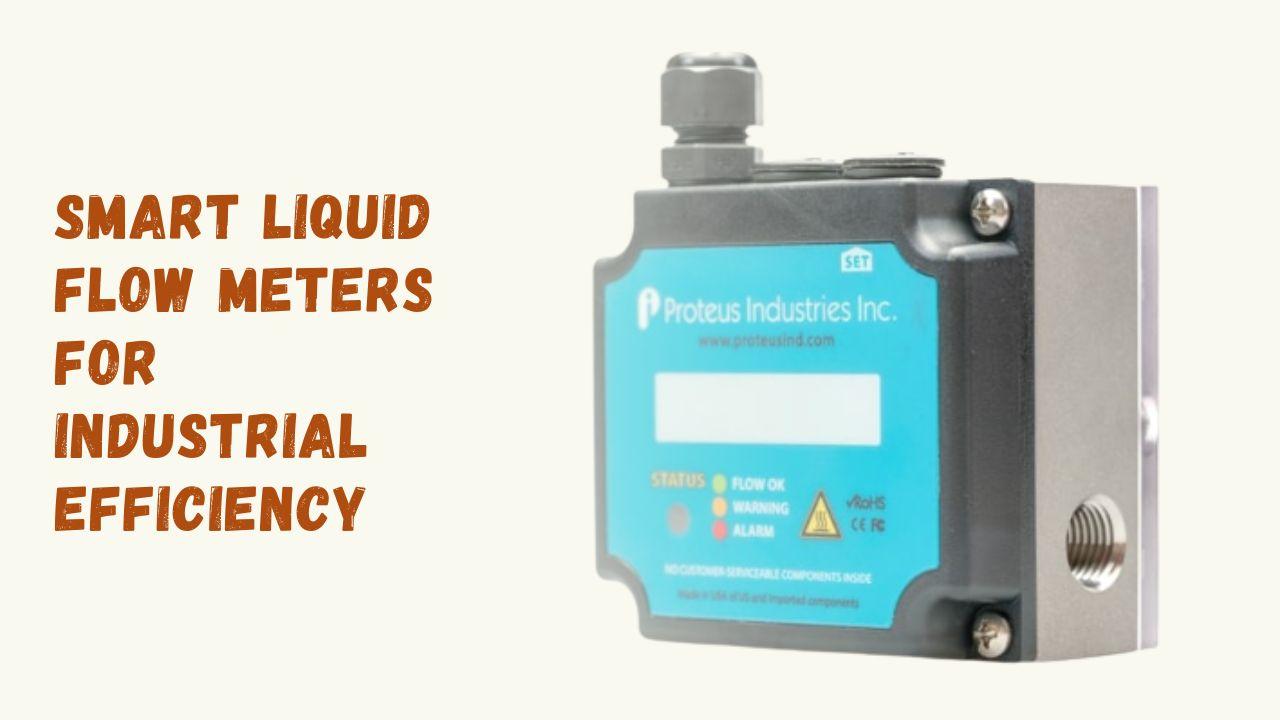A liquid flow meter is a tool used to track how much or how fast liquid is moving through a pipe. Accurate fluid measurement is critical in various industrial applications, from chemical processing to water treatment, ensuring efficiency, safety, and regulatory compliance. As technology continues to advance, smart flow meters have become increasingly popular thanks to their ability to deliver real-time data, enable remote monitoring, and offer improved accuracy. These intelligent devices help industries reduce waste, improve process control, and lower operational costs. With growing demand for automation and precision, smart liquid flow meters are becoming essential tools in modern industrial systems across the globe.
Traditional vs. Smart Liquid Flow Meters
Traditional liquid flow meters, often mechanical or analogue, measure flow using rotating components or pressure differentials, relying on manual readings and offering limited data accuracy. In contrast, smart liquid flow meters incorporate digital displays, real-time monitoring, and IoT connectivity, enabling remote access and data analysis. These modern upgrades enhance precision, efficiency, and system integration. What makes a flow meter "smart" is its ability to collect, transmit, and interpret data instantly, helping industries optimise performance and detect issues early. Unlike traditional meters, smart flow meters bring intelligence to fluid management, making them essential for today's data-driven environments.
Key Features of Smart Liquid Flow Meters
-
Wireless Connectivity & Remote Monitoring: Enables real-time data access and control without manual intervention, improving efficiency.
-
High Accuracy & Low Maintenance: Ensures precise flow measurement with minimal upkeep, reducing operational costs.
-
Built-in Diagnostics & Error Detection: Identifies issues early, supporting proactive maintenance and reducing downtime.
-
SCADA/PLC Integration: Seamlessly connects with industrial automation systems for centralised monitoring and control.
-
Energy Efficiency & Durability: Designed to operate reliably in extreme conditions while minimising energy use, making them ideal for demanding industrial environments.
Benefits of Using Smart Flow Meters
-
Enhanced Operational Efficiency: Smart liquid flow meters improve process efficiency by providing accurate, real-time flow data, reducing errors and downtime.
-
Real-Time Alerts: These meters send instant alerts for irregularities, helping prevent potential system failures.
-
Cost Savings: With precise measurement and predictive maintenance features, businesses can reduce wastage and unexpected repair costs.
-
Regulatory Compliance: They simplify meeting industry standards by offering reliable data for audits and reporting.
Selecting the Right Smart Flow Meter for Your Operation
Choosing the right smart liquid flow meter involves more than just measuring flow rate. You must consider the liquid's properties—such as viscosity, temperature, and pressure—along with the installation environment, whether it's indoor or exposed to harsh outdoor conditions. Make sure the flow meter works smoothly with your current automation and control systems for easy and hassle-free integration. Additionally, selecting a trusted vendor that offers strong technical support, regular software updates, and lifecycle services can greatly enhance long-term performance and reliability. By carefully evaluating these factors, you can select a flow meter that delivers accurate readings and supports efficient operation.
Conclusion
Smart liquid flow meters are essential tools for industries that rely on accurate fluid measurement. Their advanced sensors and digital capabilities ensure real-time monitoring, reduced waste, and improved efficiency. Unlike traditional meters, smart flow meters offer better precision, data integration, and remote access, making them ideal for modern operations. Embracing this innovation not only boosts performance but also supports sustainability and cost-effectiveness. As industries evolve, adopting smart liquid flow meters is no longer optional—it's a strategic move toward smarter, more responsive systems. In today's competitive landscape, staying ahead means choosing technologies that deliver real results where it matters most.
